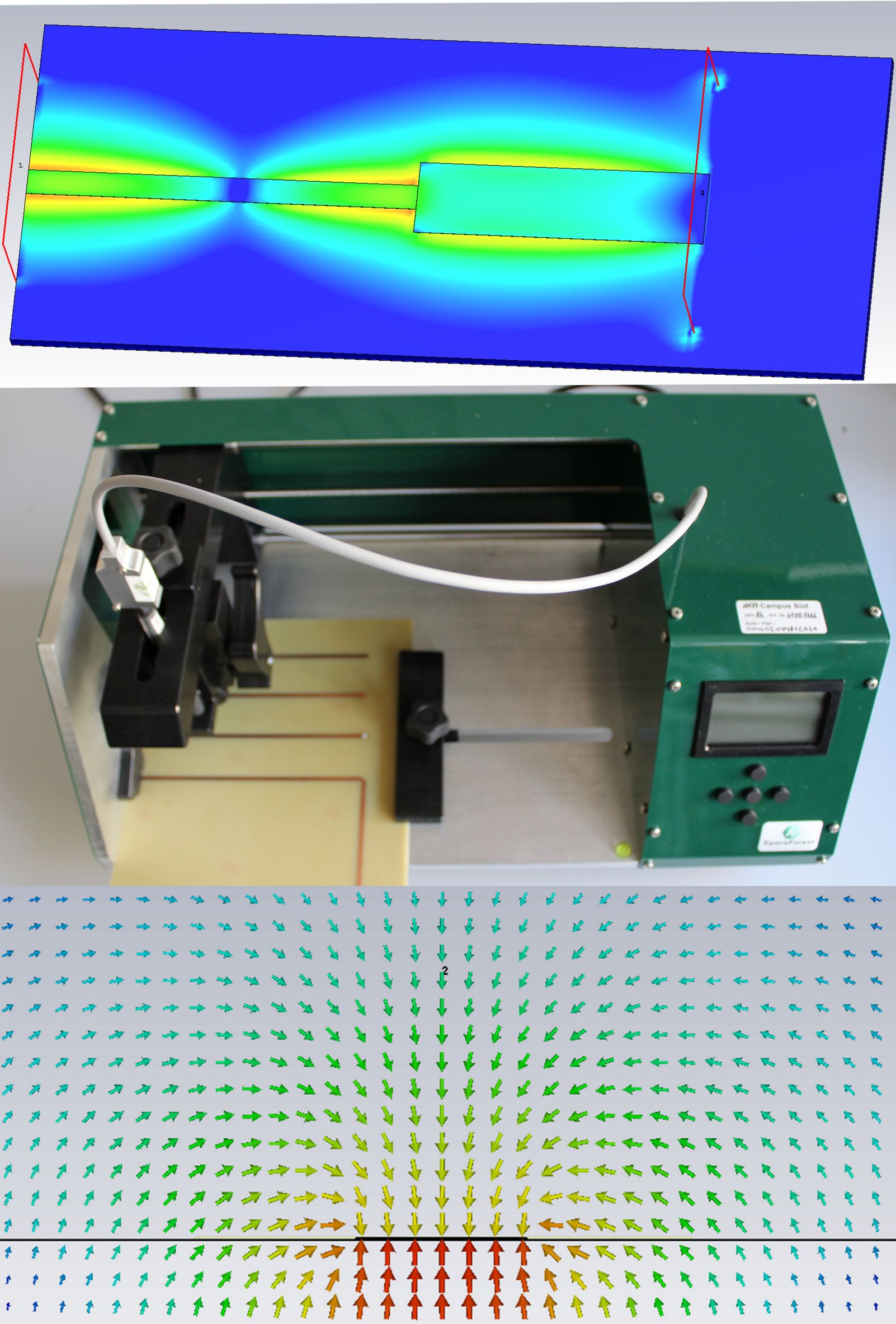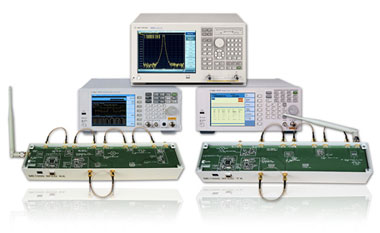Overview
The Institut für Hochfrequenztechnik und Elektronik (IHE) is offering Workshop angewandte Hochfrequenztechnik course for bachelor (B.Sc.) students in the winter and summer semesters. The students can attain 3 ECTS upon successful completion of the laboratory course. The laboratory provides a unique opportunity to the students for strengthening their practical knowledge of RF systems and learning basic RF measurement techniques. The course consists of 3 experiments in total and each experiment is divided into 1-2 afternoons (4 hours each). The experiments range wave propagation over single RF circuit and each of these experiments is accompanied with either design and simulation using tools like CST, Matlab etc or using state-of-the-art measurement equipment like spectrum analyzer, network analyzer etc.
Guidelines for Students
The Students will be divided into groups of 2 students per group and the group allocation will be finalized by the laboratory supervisor on the laboratory introduction day. Only those students who are present on the laboratory introduction day will be finally registered for participation in this course. The group plan and laboratory schedule will be uploaded on this webpage on the same day. The students should check the laboratory schedule and find the order of experiments allocated to their specific group. Each experiment is accompanied with a script (available on this webpage) which will help students in reviewing the key concepts involved in that particular experiment.
The lab schedule will be finalized after the registration is complete.
Laboratory Evaluation
For successful completion of this laboratory course, it is mandatory for each student to
- Submit the laboratory homework (individual submission) before starting the experiment
- Score at least min. passing mark in the written/oral test conducted before every experiment. If a student fails to pass the test, he/she will not be allowed to conduct the experiment. In this case they should fix a new appointment with the experiment supervisor, re-appear for the test.
- Submission of experiment protocol (one protocol per group) at the end of each experiment.
Prerequisite
The students should have basic knowledge of RF concepts and minimum level MATLAB programming skills for undertaking the laboratory.
Registration
If your student account is managed under the CAS Campus system, then you should enroll yourself in https://campus.studium.kit.edu/ for "Workshop angewandte Hochfrequenztechnik".
Registration deadline: 21.10.2025.
Please note that we have limited places available in the Laboratory (max. 12) and therefore only the first 12 Students who enroll themselves in https://campus.studium.kit.edu/ will be registered for participation in the Laboratory.
Introduction
A brief introduction of the laboratory will be given on the first lab date (28.10.2025 14:00). Presence is mandatory.
Location: IHE-Besprechungsraum (Building 30.10 (NTI) Room 3.41)
Topics
1. Measuring planar waveguides modes and standing waves (pdf)
Supervisor: Aron Szabo
Venue: IHE, Building 30.10, Room 1.18
In this part of the laboratory, the field strength of the first propagating mode in planar waveguides is measured for different conditions combining theory with hands-on experiences

2. Microwave and RF Measurements: Characterization of a Microwave Transceiver (Script, Homework)
Supervisor: Janis Blank
Venue: IHE, Building 30.10, Room 1.18
The aim of this course is to understand the functionality of microwave measurement equipment such as signal generators, spectrum analyzers and vector network analyzers, as well as to learn the handling of this equipment. During the two exercises these microwave measurement instruments are used to characterize microwave devices such as amplifiers, mixers, filters, oscillators and a full transceiver circuit.
During the preparation phase for this laboratory exercise please solve the following home work (pdf). You will be asked to show the solution to your supervisor before starting the laboratory.

3. Examination of Linear Antennas with a Network Analyzer (pdf)
Supervisor: Martin Pittermann
Venue: IHE, Building 30.10, Room 1.18
In the third experiment of this laboratory you will learn how to calibrate and use a vector network analyzer. Additinally, you will see in practice how does the impedance of linear antennas like dipols and monopoles change under different circumstances.

